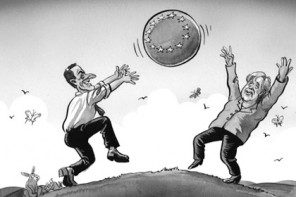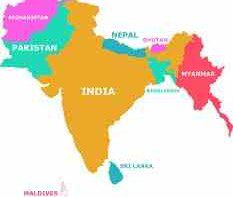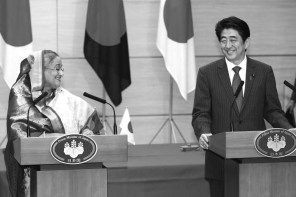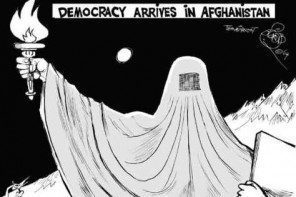Crimea has been at the center of one of Europe’s greatest geopolitical crisis since the end of the Cold War. The upheaval was the fallout of months of anti-government protests that led to the overthrowing of Ukraine’s pro-Russian President, Viktor Yanukovych. Subsequently, Russia, refusing to recognize the country’s new government, annexed Ukraine’s Crimean peninsula after backing pro-Russian forces seized the parliament building in the Crimean regional capital of Simferopol in late February, this year. While the U.S. attempted to intervene in the mass popular uprising against the oligarch’s government, Russia responded by backing its allies in the country, and mobilizing troops to the border. Consequently, the U.S and the EU responded by imposing sanctions against Russian and Crimean officials involved in the seizure of the peninsula.
A hastily arranged referendum drafted on March resulted in a vote to join Russia—although it was unanimously considered to be illegitimate by most of the rest of the world. This result, however, was not shocking given that the Crimean region was part of Russia until 1954 and most of its residents are ethnic Russians—a vast majority of whom prefer to be governed by Moscow, rather than Kiev. Accordingly, Moscow moved in quickly to concretize its control over the region, issuing passports, installing the Russian legal system, and showing no indication of considering any requests to return Crimea to Ukraine.
Sino-Russian Rapprochement
Beijing and Russia generally work in tandem at the Security Council; however, China abstained from voting on the UN Security Council draft resolution that would have condemned the referendum in Crimea as illegal, and called for all nations to respect Ukraine’s territorial integrity. Russia’s veto, and China’s subsequent abstention, meant that the resolution failed to be adopted—however it also raised questions regarding Russia’s international isolation over the situation in Crimea.
What does this mean for Sino-Russian ties?
China and Russia may have been estranged during the latter part of the Cold War, only resolving their own tense border issues in 2008 when Russia handed over Yinlong Island (known as Tarabarov in Russia) and half of the Heixiazi Island (Bolshoi Ussuriysky) to China, but the two nations have long found common ground over the issue of state sovereignty. For the last decade, Russia and China have often worked together when dealing with the internal crises of foreign countries. Most recently, China had backed Russia in its efforts to keep the United Nations from pressuring the Assad regime in Syria. Yet ironically, China’s wonted partner in defending the integrity of state sovereignty is the very country whose troops now occupy and control Crimea.
As permanent members of the United Nations Security Council (UNSC), according to a Carnegie Endowment report by Dmitri Trenin, China and Russia have been using their privileges to take a common stand on contentious security issues such as Kosovo, Iraq, Iran, Sudan, Libya, and as mentioned, Syria. In doing so, they seek to present an alternative to the dominant views of the United States and its closest allies, and to demonstrate Sino-Russian solidarity. When voting at the UNSC, Russia has been more inclined to use its veto power than China, as was evident with regards to the Crimean referendum.
Nonetheless, China stands on shaky grounds over the situation in Ukraine, and quite understandably so. One of the principle tenets of Chinese foreign policy for decades has been non-interference in the domestic affairs of other countries. This has meant that China keeps out of foreign conflicts, and expects the same from other countries, including Russia. Such policies provide a convenient barrier against foreign meddling in China’s own domestic affairs, and a way of avoiding getting involved in messy political disputes, or taking-on incommodious responsibilities. It is thus not very surprising that China has been reluctant to weigh in on the question of the Crimean referendum.
By sending military forces and calling for a referendum in Crimea, Russia had undermined China’s two core diplomatic principles: non-interference, and protection of territorial integrity. Moreover, the idea of a popular vote to decide the fate of a country’s territory remains precarious to China. Separatism is seen as a radical ideology, one that could pose dangerous challenges to the Chinese government’s authority in controversial areas such as Xinjiang, Hong Kong, Taiwan, or Tibet. Indeed, China is passionately averse to any political movements that advocate separatism within its own borders.
If Crimea can be allowed to vote for independence, then why not these Chinese regions which are also striving for independence?
China-Russia Gas Deal
Nonetheless, from an economic outlook, Sino-Russian relations seem to be as robust as ever. Russia and China agreed to a 30 years, $400 billion gas deal at a meeting in Shanghai, in late March. While Russia’s pact with China has been under negotiations for over a decade, the crisis in Ukraine may have had a vital contribution in the swift finalization of the deal. The long awaited agreement has been a political triumph for Putin, who boasted the deal between the state-controlled, Gazprom and China National Petroleum Corporation as, Reuters reports, “the biggest contract in the history of the gas sector [between the two nations].” The deal entails drilling new fields through Siberia, and would be a win-win for both sides. It directly links Russia’s expansive gas fields to Asia’s growing market via a 2,500-mile pipeline, shipping 1.3 trillion cubic feet of gas each year. Therefore, China now secures a long-term provision of natural gas from Russia, while Russia can reduce its dependence on European markets, thereby strengthening its position against Western sanctions.
Moreover, the deal enables China to diversify its sources of energy, most of which are under American hegemony (for example the Middle East). And the deal that China has managed to negotiate (at $350 per 1000 cubic meters) is much lower than both, EU standards and the average rates in Asia. In addition, China can now, in turn use this competitive edge to pressure other suppliers to lower their prices. And by securing the pipeline thought Siberia, China lessens its dependence on the import of oil through the chokepoint of the Strait of Mallaca, which is policed by the U.S. Navy.
To add to the woes of the West, the deal was struck in Yuan and Ruble—freeing Russia and China from dependency on U.S capital. This is significant because although the dollar remains as the reserve currency due to its perceived security and liquidity, the deal epitomizes growing discontent with the Western dominated economic order, and indicates a yearning for change. And it seems evident that Russia and China, along with other BRICS nations, are seeking to have much greater levels of autonomy over their own destinies, in contrast to the past.
A more fundamental question: Is China and Russia moving towards a formal alliance?
The crisis in Ukraine has seriously damaged relations between Russia and the West, thereby pushing Russia closer to China. However, there are also larger strategic reasons involved—mutual strategic needs, as both China and Russia want to create a multipolar world free from U.S. domination. Chipping away at the foundations of U.S. power serves the interests of the two nations, both of whom seek world recognition as great powers in the 21st century.
Furthermore, since the Soviet Unions’ disintegration in the early 1990s, the two countries have predominantly acted on the basis of shared interests—particularly on issues such as maintain stability in Central Asia, whose energy supplies are vital for both countries’ economic development. Both countries are cognizant of the fact that regional events such as political conflicts or revolutions could adversely affect core security interests.
On the other hand, a Sino-Russian axis could be a natural fit. Russia has a surplus of resources but faces a shortage of manpower, whereas China faces the opposite problem. A Reuters report by Anatole Kaletsky suggest that Russia has robust industries in advanced military technologies and software, but remains weak in the mass production of consumer goods and electronics—and again, China has the converse strength and weaknesses. In addition, apart from the gas deal, the two countries have signed a number of energy deals, as Shannon Tiezzi reports in The Diplomat, including an agreement for Russia to supply $85 billion of oil (Under which, Rosneft, the world’s largest-listed oil producer, will supply China with up to 100 million tons of crude oil over 10 years). Thus in economic terms, China is Russia’s top commercial partner. And the close proximity to China, along with access to its goods and market is an additional obvious asset to Russia.
A common adversary
Sino-Russian relations may have its occasional hiccups, but this may not impede them from forming an alliance, as long as they perceive the common adversary. Both countries share an ideological distaste for Western doctrines, particularly its implicit ‘global policeman’ function. One obvious example would be the “responsibility to protect,” which entails calling on the world to intervene in specific countries in times of exceptional circumstances, such as those of preventing humanitarian crises. Besides, both countries have vested interests in keeping such principles out of the international governance system. Both countries are aware of each other’s importance in terms of maintaining strategic alliances, and consciously refrain from any undertaking that would compromise their relations.
Nevertheless, as China’s global influence continues to grow, Russia could end up seeing Beijing as much as a rival as a partner. Putin’s Crimea incursion was not only motivated by his desire to protect Russia’s sphere of influence from the West, but also by his intentions to maintain the prevailing Russian influence in Central Asia, where China could very well potentially emerge as a long-term challenger. Yet, the next few years seems optimistic for both countries in terms of maintaining strong and practical ties with each other.
China’s ambitions are those of an emerging great power, whereas, as exemplified by the Crimean takeover, Russia’s ambitions underline the lashing out of a leader in the midst of rapidly losing its political leverage. The last thing Putin wants to do is take a backseat when it comes to maintaining strategic alliances with China. Still, China and Russia are closer to each other on a geopolitical level than they are to Western parties, and both are likely to find it comfortable to get even closer in order to shape future outcomes more to their respective national interests.
Mishaal Masud Sinha
Master’s candidate at the University of Ottawa and Research Intern, BEI







